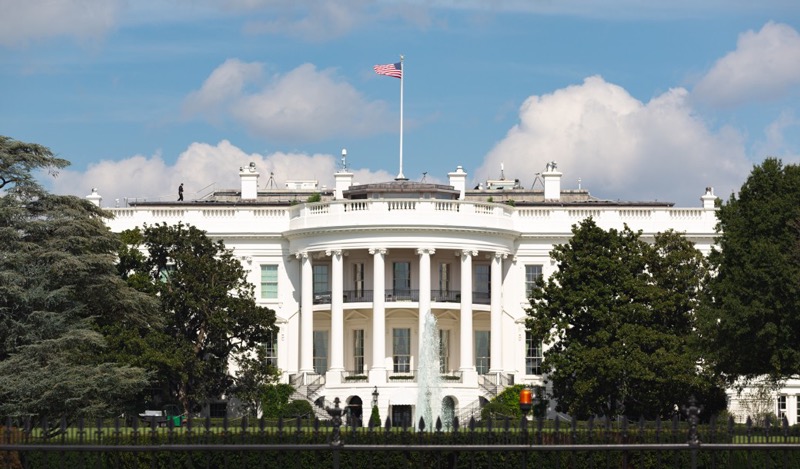News
The GENIUS Act & Stablecoin Regulation: BRG's Dominic Zagara on Crypto's Defining Moment
Summary: At Bitpush, we recently engaged in an insightful discussion with Dominic Zagara, a Senior Managing Consultant at BRG. Mr. Zagara's perspective is particularly informed by his tenure as a Virtual Currency Unit Financial Crime Specialist at the New York State Department of Financial Services (NYDFS) from 2022 to 2024. Renowned for his acumen in elucidating ...

At Bitpush, we recently engaged in an insightful discussion with Dominic Zagara, a Senior Managing Consultant at BRG. Mr. Zagara's perspective is particularly informed by his tenure as a Virtual Currency Unit Financial Crime Specialist at the New York State Department of Financial Services (NYDFS) from 2022 to 2024.
Renowned for his acumen in elucidating complex regulatory frameworks, Mr. Zagara offered profound insights into the recently enacted GENIUS Act, the evolving cryptocurrency regulatory landscape, and his forward-looking vision for the trajectory of digital assets.
The GENIUS Act: Echoes of Money Market Reforms in Stablecoin Clarity
Our conversation commenced with the landmark GENIUS Act, a pivotal legislative development for the cryptocurrency sector, particularly regarding stablecoins. Mr. Zagara underscored that while the Act represents a significant stride, its foundational provisions are rooted in familiar precedents – specifically, the money market reforms that emerged in the aftermath of the 2008 financial crisis.
"The good news is that the provisions in the GENIUS Act are very familiar," Mr. Zagara explained. "They started off in the money market reforms following the 2008 financial crisis when the breaking of the buck happened... those reforms were the basis of DFS's innovation when it comes stablecoins."
He emphasized the critical imperative of stablecoin backing, a lesson powerfully reinforced by the Terra/Luna crash. The NYDFS's June 2022 guidance on stablecoins, which mandated high-quality liquid assets such as short-term treasuries and bank deposits, effectively served as a regulatory blueprint. Drawing directly from his firsthand experience at NYDFS, Mr. Zagara cited the USDC de-pegging during the Silicon Valley Bank collapse as a testament to these principles. Despite the momentary price deviation, the underlying reserves facilitated seamless redemption, thereby safeguarding consumer funds. "You force companies to report their reserves. What assets are backing this asset," he stated, reinforcing the crucial need for transparency and redeemability.
Combating Illicit Finance: Embracing a Risk-Based Approach
The GENIUS Act's reinforcement of sanctions and anti-money laundering (AML) controls segued our discussion to the persistent challenge of illicit finance. Mr. Zagara recounted his responsibilities at the NYDFS, where a significant portion of his role involved implementing blockchain analytics guidance.
"A lot of the considerations on the blockchain are nearly identical to the considerations with fiat," he observed, highlighting the continuity in financial crime prevention methodologies. He pointed to a notable paradigm shift: traditional financial institutions, predominantly regulated by the Office of the Comptroller of the Currency (OCC), are moving away from an "everything is high risk" mentality towards a more nuanced, risk-based approach for blockchain-based assets.
Mr. Zagara lauded the proactive efforts of entities such as Tether, whose publicly maintained block list for freezing and seizing stablecoins interacting with sanctioned addresses serves as a key typology within contemporary blockchain analytics tools. "It's very exciting to see the traditional financial industry which has lived and died on the risk-based approach, transition to applying a risk-based approach to these illicit actors... rather than assuming everyone is an illicit actor," he asserted, advocating for a more targeted and efficient regulatory strategy.
Stablecoin White-Labeling's Future: Dispelling Misconceptions
A prevailing misconception within the cryptocurrency discourse, particularly on crypto Twitter, suggests that the GENIUS Act directly facilitates tech giants like Amazon or Meta in issuing their own stablecoins. Mr. Zagara swiftly dispelled this notion.
"If you read the GENIUS Act, it explicitly forbids that," he clarified. However, this prohibition does not preclude technology companies from leveraging stablecoins. Mr. Zagara envisions a future where stablecoins increasingly facilitate everyday purchases, albeit through a white-labeling model. "I do see potential for white-labeling of stablecoins," he explained, for instance, that regulated entities such as Paxos could issue stablecoins branded by Meta (e.g., "Meta USD"), akin to their existing partnerships with PayPal and Binance.
He underscored the paramount importance of regulated financial institutions being the issuers and controllers of stablecoin risks. "If Meta wanted to unwind a stablecoin, I want it to be unwound by an institution such as Paxos that has a history of being able to unwind stablecoins without customer harm." He cited the unwinding of Binance USD by Superintendent Harris as a "monumental achievement in a new space," reiterating that robust customer protection must invariably remain the foremost priority.

The conversation seamlessly transitioned to the intricate interplay between federal and state-level cryptocurrency regulations – a dynamic Mr. Zagara characterized as "as old as the constitution." He views the diverse regulatory approaches across U.S. states as a "laboratory of democracy."
"The magic of America is that we get to try, at most, 50 different versions of regulation. And then the federal government can kind of see we get data. Say what happened here, what worked, what didn't," Mr. Zagara elaborated. He further noted that the GENIUS Act has, in fact, incorporated numerous successful elements from the NYDFS's regulatory framework, particularly concerning reserve and attestation requirements.
The Future of Crypto: Invisible Blockchain and Responsible Innovation
Reflecting on his three years immersed in crypto regulation, Mr. Zagara has witnessed a significant "vibe shift" – a maturation as cryptocurrency progressively integrates into the financial mainstream. He stressed that core principles remain immutable: "don't violate sanctions, don't rip off your customers... don't pretend that you have magic beans when you don't... and be a responsible player in space." While acknowledging that no regulatory framework is flawless, he firmly adheres to the maxim, "don't let perfect be the enemy of good."
Looking forward, Mr. Zagara articulated an exciting vision for the future of blockchain: its widespread, yet invisible, adoption. He foresees a future where monetary transfers increasingly occur on blockchain rails, often without users' conscious awareness. "I hope in a year, I can say we're all using the blockchain now, and we don't even know it," he said. "That would be an amazing innovation because at the end of the day, what blockchain is? A better wire and ACH system. It's better financial plumbing." This improved 'plumbing' critically relies on foundational infrastructure builders, with firms like Allium playing a crucial role in developing the necessary data solutions and on-chain efficiency essential for traditional finance integration.
Mr. Zagara's comprehensive insights provided a lucid roadmap through the intricate landscape of cryptocurrency regulation, highlighting both the attendant challenges and the immense potential for a more efficient, secure, and integrated financial future. We at Bitpush extend our sincere gratitude to Dominic Zagara for his time and invaluable contributions to this critical dialogue.
Tags: AML,GENIUS Act,NYDFS,OCC,Stablecoin
Link: The GENIUS Act & Stablecoin Regulation: BRG's Dominic Zagara on Crypto's Defining Moment [Copy]